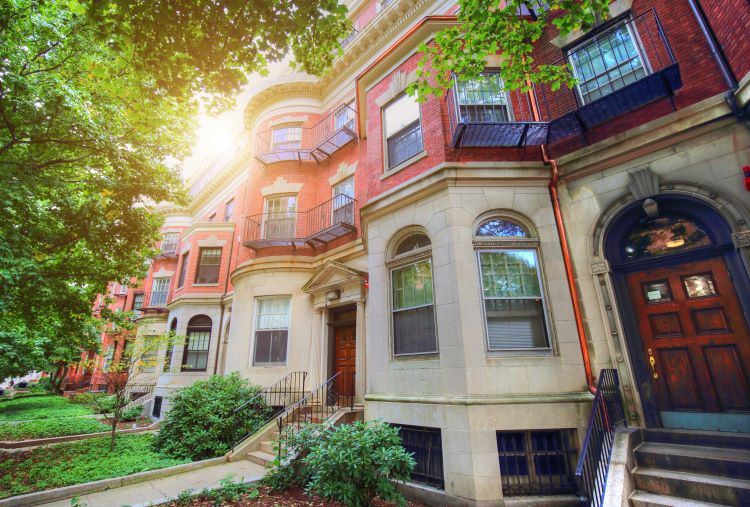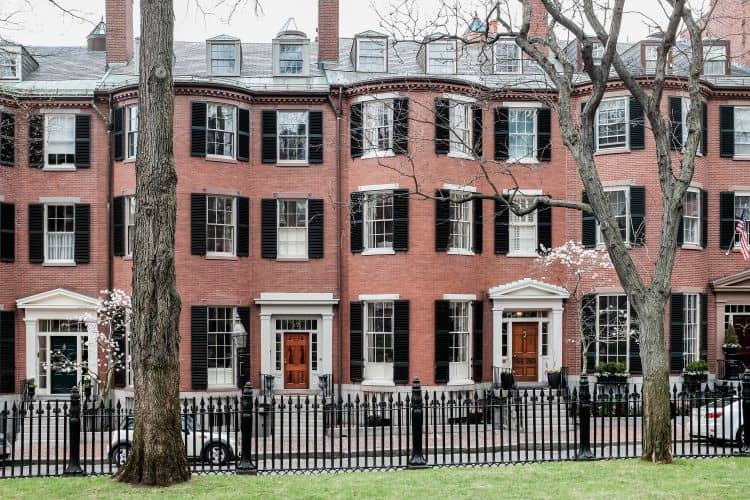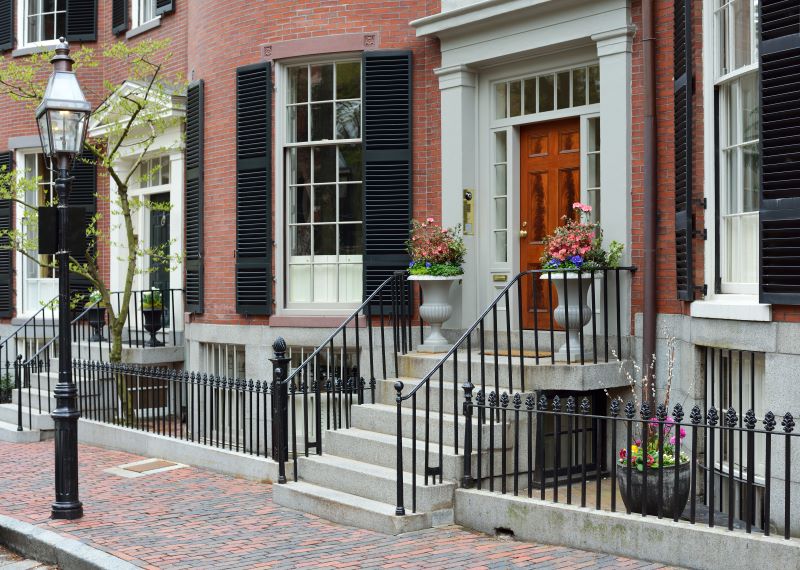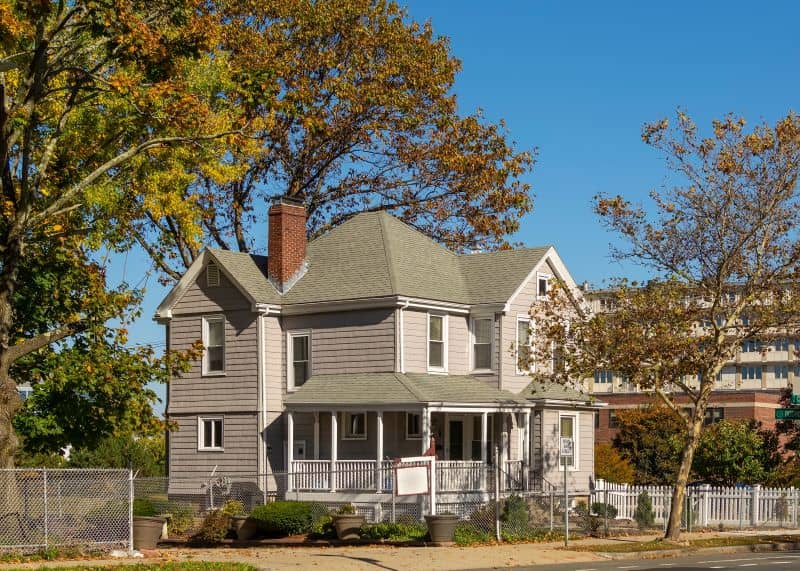
Purchasing your first home is a big deal to say the least. In fact, it is most likely the biggest investment you will make at this point in your life. That is why you need to ensure that you know exactly what you are doing each and every step of the way. This holds especially true when it comes to the mortgage. In essence, you will need to take out a mortgage to purchase your new home unless you happen to have enough money on hand to purchase it in cash. By the way, the vast majority of home buyers, especially first time home buyers need to take out a mortgage in order to purchase real estate, so you are certainly not alone if you fall into this category. That being stated, there are several different types of mortgage programs that may be available to you. Learning about them ahead of time is key. That way you won’t be confused when it comes time to applying for the mortgage. It will also increase your chances of being approved for the loan since you’ll have a good idea about the credit score requirements, income requirements, and down payment requirements needed for each loan program.
The main thing that we can advise you is to keep your head up through the entire mortgage process. You need to realize that you may not qualify for a particular mortgage program, but that doesn’t mean you won’t qualify for another type of mortgage. If you qualify for multiple types of mortgages, then you will need to make a choice. The more information that you are armed with the better off you will be when making that choice. Once you have conducted some research, know your credit scores, calculated out how much you can spend each month on the mortgage payment based on your income and current debt, and know exactly much money you have available for the down payment you will have a much better idea of what will make the most sense for you regarding the loan. So, without further ado, the following information will provide you with everything that first time home buyers should know about mortgages. It all starts with the main types of mortgage loans for first time home buyers.

The Conventional Mortgage
Did you know that conventional mortgages are extremely popular with borrowers because most traditional banks and lending institutions offer them? In essence, a conventional mortgage is a home loan program that is not guaranteed or insured by the federal government. In essence, the mortgage is backed by traditional banks and lending institutions, and he insurance on the loan is typically paid by the borrower. There are actually two (2) types of conventional loans. They are called conforming loans and non-conforming loans. The bottom line is that with a conforming loan the loan amount is within the limits of the maximum loan amount as set forth by the Federal Housing Finance Agency or FHFA for short. On the other hand, non-conforming loans do not fall within the FHFA guidelines. Jumbo loans area a good example of this. They are named jumbo loans because the loan amounts are higher than the maximum conforming loan amounts. It should be noted that the FHFA loan amount limits vary for different counties, so a conventional loan amount may be higher in Suffolk country than it is in Bristol country for example.
Prior to the housing crash of 2012, non-conventional loans included the sup-prime mortgage category. Sub-prime loans had far less strict lending requirements in exchange for higher interest rates. Although sub-prime non-conventional mortgages are no longer available it’s something you may have heard of, so we decided to mention it. Typically speaking, traditional banks and lending institutions will require the borrower to pay private mortgage insurance if the down payment is less than 20 percent on a conventional purchase loan. The average cost of private mortgage insurance or PMI for short on a conventional loan ranges from 0.55% to 2.25% of the original loan amount per year, although it is paid on a per monthly basis along with the monthly mortgage payment. For example, if your original mortgage amount is $300,000, the PMI will average $1,650 to $6,750 per year or $137.50 to $562.50 per month. If you’re down payment is going to be less then 20%, you need to factor the monthly PMI into your budget.
Conventional Mortgage Pros
A great deal of home buyers ends up applying for conventional mortgages to purchase real estate, especially first time home buyers. Here are some of the pros:
1. Conventional mortgages can be used to purchase your primary home, second home, and or investment property
2. Conventional mortgages typically have lower closing costs when compared with other types of mortgages
3. The PMI can be cancelled once your equity position reaches a minimum of 20%
4. The minimum down payment amount can be as low as 3%.
Conventional Mortgage Cons
Although conventional mortgages are incredibly popular, they are not perfect. Here are some of the cons:
1. The minimum credit (FICO) score is typically 620 or higher
2. Your debt-to-income ratio* must be under 45% or 50% maximum
3. PMI is typically required if the down payment is less than 20 percent of the purchase price of the property
4. Strict approval requirements include but are not limited to asset verification, employment verification, and down payment verification
Debt to income ratio or DTI for short, is the amount of money that you owe each month compared to your gross monthly income. In essence, it is a percentage of your income before taxes that goes towards your new monthly mortgage payment, automobile loan, minimum credit card payments, student loan payments, and whatever other loans you pay monthly that show up on your credit report
For example, if you gross $10,000 per month, at a 45% DTI, the max of all of your monthly bills including the new mortgage payment is $4,500 per month.
Should You Apply For A Conventional Mortgage?
Conventional loans are perfect for borrowers who have strong credit scores, a stable income, a solid employment history, and a down payment of at least three (3) percent or more.

The Jumbo Mortgage
As we mentioned above, jumbo mortgages are actually conventional mortgages that contain non-conforming loan amounts or loan limits. In essence if the mortgage amount is higher than the federal loan limits it’s considered to be a jumbo loan. Did you know that the average maximum conforming loan limit for single-family homes in 2021 is $548,250? However, Boston is considered a high-cost area so the maximum loan amount for conventional mortgages actually increases to $724,500 for single family home purchases, and up to $1,393,300 for 4 family homes for 2021. That being stated, you should always check with a professional about the conventional loan limits when purchasing a home in surrounding areas outside of Boston city limits. The bottom line is that if you need a mortgage amount that is higher than the maximum limit of $724,500 for a single-family home purchase in Boston, or a mortgage amount that is higher than the maximum limit of $1,393,300 for a 4-family home purchase in Boston you will need a jumbo loan. Jumbo loans typically require more in-depth documentation in order to qualify for the loan.
Jumbo Mortgage Pros
A smaller percentage of first time home buyers apply for jumbo loans because they are for more expensive properties. Here are some of the pros.
1. Jumbo mortgages provide you with the ability to borrow more money in order to purchase a home in an expensive area
2. Although the loan is technically considered to be non-conforming, the interest rates are competitive with other conventional mortgages
Jumbo Mortgage Cons
It is far more difficult to obtain for a jumbo mortgage based on the loan size. Here are some of the cons.
1. Jumbo mortgages typically require a down payment of 10-20 percent of the purchase price
2. You will need to have good credit scores of 700 or above. That being stated there are some lenders who will lend with 660 credit scores.
3. The maximum debt to income ratio is 45%, plus you need to prove that you have assets that equal at least 10% of the loan amount in cash or in savings.
Should You Apply For a Jumbo Mortgage?
Jumbo mortgages typically make sense for more affluent buyers who are purchasing either high-end homes, or expensive multi-family homes that they plan to live in while renting out the other units. Jumbo mortgage borrowers need to have good to excellent credit scores, a high-income level, and a large down payment. Even if you are purchasing an expensive property, you may not need a jumbo mortgage if you can afford to increase the down payment amount.

Government Mortgages
Did you know that the United States federal government isn’t a mortgage lender, but do play a large role in helping hard working American citizens realize the dream of homeownership? That is why there are three (3) separate government backed lending agencies that back mortgages, which allows the lenders to ease the lending requirements slightly. They are as follows….
FHA Mortgages
FHA mortgages are backed by the Federal Housing Administration or FHA for short. FHA mortgages enable borrowers with lower credit scores and lower down payments to purchase homes. For example, you only need a credit (FICO) score of 580 or above to qualify for an FHA purchase loan. The minimum down payment is 3.5 percent of the purchase price of the property. That being stated, if a borrower has a credit (FICO) score as low as 500 they will qualify for the loan with a down payment of ten (10) percent of the purchase price of the property. The Federal Housing Administration requires not one but two types of PMI, or mortgage insurance premiums. One is paid upfront, and the other is paid annually for the life of the loan if the initial down payment is less than ten percent of the purchase price of the property. This holds true even when your equity position increases to ten percent of more. You need to keep in mind that this will increase the overall costs of your loan.
USDA Mortgages
USDA mortgages are backed by the United States Department of Agriculture of USDA for short. In essence, USDA mortgages are meant to help low-income borrowers purchase homes in rural areas. That means you must buy property in a USDA eligible area and meet particular low-income limits in order to qualify. As an added bonus, some USDA mortgage do not require a down payment if the borrower meets eligibility requirements.
VA Mortgages
VA mortgages are backed by the U.S Department of Veterans Affairs or VA for short. VA mortgages are for U.S. military members including active duty, veterans, their families. Since VA mortgages are technically a benefit, they are incredibly flexible, do not require a down payment, do not have PMI even if the borrower finances 100% of the purchase price, and the closing costs are not only lower, but can be paid by the seller. That being stated, a funding fee, that is a percentage of the loan amount, is required in order to help offset the cost of the program. The funding fee, along with other closing costs can either be included in the mortgage amount or paid upfront at the loan closing. For example, if the funding fee and other closing costs are $5,000 that can be added to the mortgage amount and financed over the course of the loan.
Government Backed Mortgage Program Pros
1. FHA, USDA, and VA mortgages are perfect for borrowers who don’t qualify for a conventional loan
2. The credit requirements are lower, meaning you don’t need great credit in order to qualify
3. Low or even zero down payment
4. First time home buyers and repeat buyers can qualify
Government Backed Mortgage Program Cons
1. Some of these loan programs, such as FHA mortgages require PMI that cannot be canceled no matter how much your equity position has increased
2. The borrowing costs may end up being higher when compared to conventional mortgages
3. You need to be a veteran in order to qualify for a VA mortgage
4. You need to purchase a home in a rural area in order to qualify for a USDA mortgage
Should You Apply For A Government Backed Mortgage Program?
Government insured mortgages are perfect for borrowers who have less than perfect credit, low or no down payment, and cannot otherwise qualify for a conventional mortgage. In addition, if you are an active-duty member of the United States Army, Air force, Marines, Navy, or National Guard, VA loans are part of your benefits package.

Fixed Rate Mortgages Vs. Adjustable-Rate Mortgages
Now that you are familiar with the types of mortgage programs that may be available to you as first time home buyers, it is time to dive a little bit more into the details of the loan. For example, you can typically choose between a fixed interest rate, or an adjustable interest rate as outlined below….
Fixed Interest Rate Mortgage
Did you know that fixed interest rate mortgages keep the exact same interest rate over the entire life of your mortgage loan? In essence that means your monthly mortgage payment will be the same because the interest rate never changes. However, if you take out a conventional fixed rate mortgage, your monthly payment may end up being lower when you are able to get rid of the PMI.
Fixed interest rate mortgages are typically available in 15-year loans, 20-year loans, and 30-year loans. Of course, a 15-year fixed rate mortgage will cost you significantly less overall money in interest payments over the life of the loan, but it will also have a significantly higher monthly payment when compared to a 20- or 30-year loan. A 20-year fixed rate mortgage won’t save you as much money in the long run as a 15-year fixed rate mortgage, but it will save you a significant amount of money in interest payments when compared to a 30-year fixed rate mortgage. That being stated, a 20-year fixed rate mortgage will cost you significantly more money per month when compared to a 30-year fixed rate mortgage. Let’s take a look at the following example of how this works using a $300,000 mortgage as the example.
A $300,000 30-year fixed rate mortgage at an interest rate of 2.85% is $1,241/month x 360 months = $446,760
A $300,000 20-year fixed rate mortgage at an interest rate of 2.71 is $1,621/month x 240 months = $389,040
A $300,000 15-year fixed rate mortgage at an interest rate of 2.35% is $1,979/month x $356,220
As you can see, the 20-year fixed interest rate is lower than the 30-year fixed interest rate, but higher than the 15-year fixed interest rate.
Fixed Interest Rate Mortgage Pros
1. The Monthly principal and interest payments stay the same through the entire life of the loan, meaning your monthly mortgage payment will never go up
2. You can budget for other expenses a whole lot easier since your mortgage payment is steady for the life of the loan
Fixed Interest Rate Mortgage Cons
1. The interest rate is higher than the initial interest rate on an adjustable-rate mortgage
2. Your monthly payments are higher
3. You pay significantly more interest the longer the loan is for
<3>Should You Apply For A Fixed Interest Rate Mortgage?
The answer is yes if you plan to keep the loan for at least 5 to 7 years or longer. This is due to the fact that the fixed rate offers you absolute stability when it comes to your monthly mortgage payments.

Adjustable Interest Rate Mortgage
If you take out an adjustable-rate mortgage or ARM for short, the interest rate will only be fixed for a specific period of time which typically runs from 2 to 5 years, although some ARM’s can have a fixed interest rate period of 7 plus years. Once the fixed period of time has expired the interest rate will reset periodically at yearly or even monthly intervals. The interest rate for ARMS is reset based on a specific benchmark or index, plus the ARM margin, which is an additional spread. In essence, the interest rate will fluctuate depending on the current mortgage market conditions. That means it could go up, go down, or even stay the same. The bottom line is that once the fixed period ends, you are taking a tremendous financial risk. For example, if the interest rate goes up in a significant manner you may not be able to afford the mortgage payment. That is why most homeowners refinance the ARM mortgage prior to the interest rate adjustment period. However, you may or may not be able to refinance at the time due to a great deal of variables such as your credit score, income, debt to income ratio, and appraisal value of the property to name a few.
Adjustable Interest Rate Mortgage Pros
1. You will have a lower fixed rate compared to a 15-year fixed, 20-year fixed, or 30-year fixed mortgage during the fixed period of the loan
2. Your monthly mortgage payment will be lower during the fixed period of the loan
3. You’ll save a significant amount of money on interest payments during the fixed period of the loan
Adjustable Interest Rate Mortgage Cons
1. Your monthly mortgage payments may become unaffordable during the adjustable period of the loan, which can easily lead to foreclosure
2. If the real estate values happen to fall it will become far more difficult to refinance the mortgage or sell the property before the loan starts to adjust.
Should You Apply For An Adjustable Interest Rate Mortgage?
First and foremost, you need to be comfortable with a particular level of risk prior to applying for an adjustable-rate mortgage. Even if you plan to sell or refinance your home prior to the end of the fixed period of the loan you just never know what will happen between now and then. However, if you plan to make a large down payment that will cushion the risk because you will begin the homeownership phase with a significant equity position.
Unique Circumstances for First Time Home Buyers Call for Unique Solutions
In conclusion, it is incredibly important to carefully review your financial situation prior to moving forward with any of the mortgage programs as listed above. That means you should give careful consideration to both your current circumstances and your long-term goals in order to determine which type of mortgage may be best for you now and in the future. It is important to work with a leading professional real estate agency that specializes in helping first time home buyers navigate their way through the process. Boston Pads is here to help. We are experts in the Boston single family and multi-family home market and that includes all of the surrounding areas. If you’re a first time home buyer, we will go the distance to ensure that your home buying experience is as amazing as possible. We will also provide you with additional resources such as our First Time Home Buyers Home Buying Resources section on our website.
Our Boston Pads website also contains the most complete list of properties for sale in Boston and surrounding areas. You can also get a good idea about how much your mortgage will cost you by reviewing our mortgage calculator. We look forward to working with you.

Phil Ganz
Published March 1, 2021
Mission: To provide a platform that allows consumers to make more educated and confident financial decisions.





